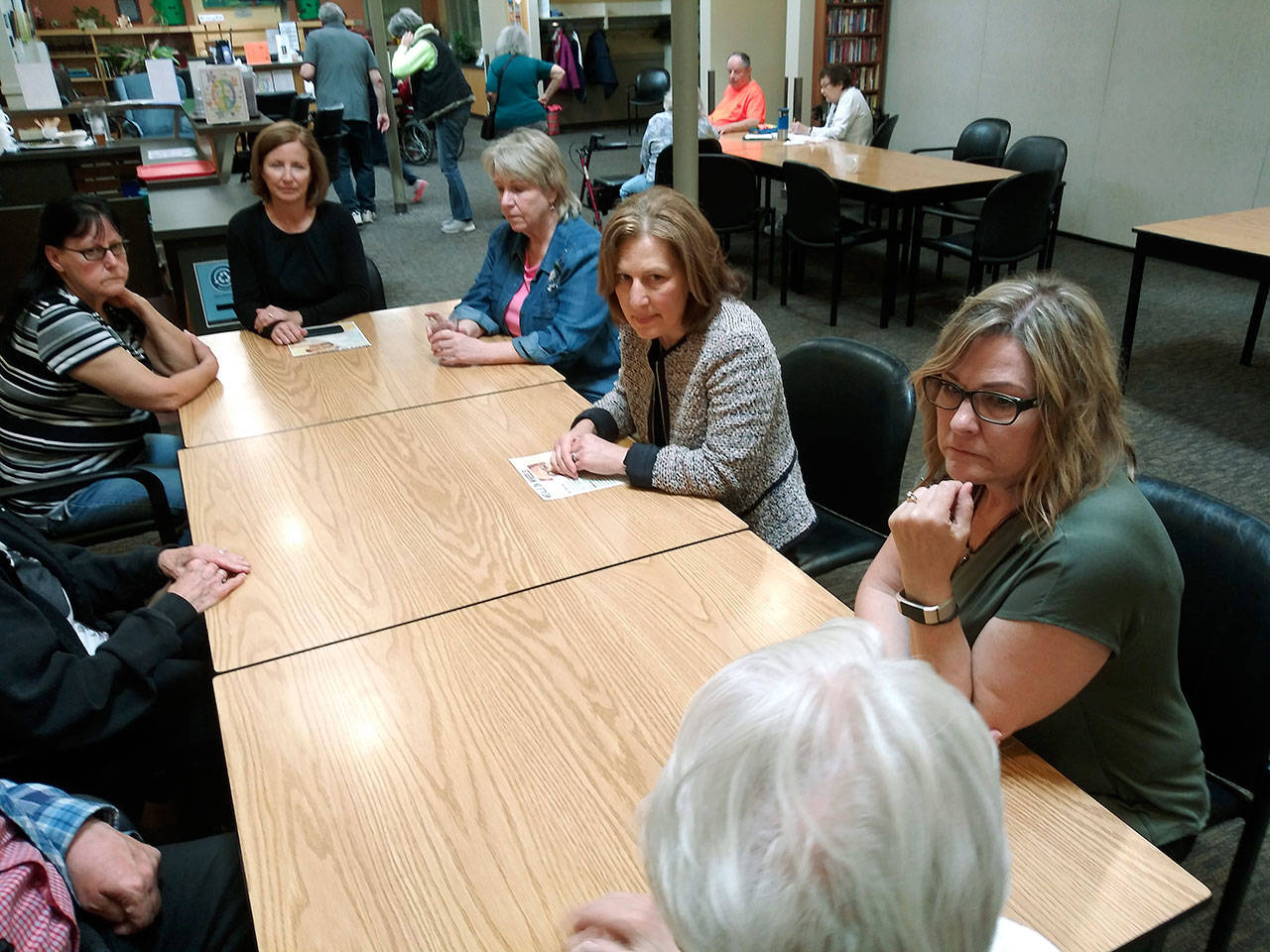As such things go, it was about as informal as could be – just a handful of senior citizens and their U.S. House Representative, chatting around a small table at the Auburn Senior Activities Center on the morning of July 5.
Home for a brief recess and soon to be back in Washington, D.C., Congresswoman Kim Schrier, D-Issaquah (8th District), was keen to hear about things that mattered to the senior set.
Like the kinds of services the senior center offers seniors in general, how it uses monies provided by the Older Americans Act, which is up for renewal, and what’s the buzz with the federally-administered Meals on Wheels program for housebound seniors?
Seniors present, a number of them volunteers for Meals on Wheels, gave the program, made possible by the Older Americans Act, top marks.
And hats off to the woman, who talks to the senior clients in their homes, asks them whether they like the food, whether they have any complaints.
The program, which delivers about 50 frozen meals every Friday over four routes. numbers 70 clients in Auburn. Altogether, King County serves more than 1,700 clients.
“I remember my mother-in-law was 96, we would always be there when (the program’s evaluator) came, and she was very thorough. It was a good thing to have her come out,” one senior recalled.
“I was wondering if we should increase that to three a day – breakfast, lunch and dinner,” Schrier said of the MOW program.
Radine Lozier, director of the senior center, told Schrier that the Auburn Food Bank had called days earlier, letting her know it had 12 pallets of potatoes. Would the center like one of them?
Yep, the center would, said Lozier.
“We get a lot of stuff like that from them,” Lozier said, a bit flabbergasted by the food bank’s generosity, especially of late.
Schrier soon pivoted to the subject of legislation that is coming up for a vote in the near future.
“I think minimum wage is going to come up pretty soon, raising the minimum wage to $15 an hour,” Schrier said.
“We already have that,” said one senior.
“Some places don’t,” another responded.
In states like Alabama and Mississippi, Schrier said, the minimum wage is still only $7.25 an hour.
Schrier drew laughter when she expressed an unexpected eagerness to sing karaoke to the seniors, but alas, that activity was done for the day.


